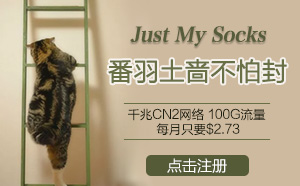共计 3249 个字符,预计需要花费 9 分钟才能阅读完成。
VUE 组件
全局组件
注意事项
- 组件中的 data 必须是一个函数,这样就能让各个组件的数据独立。
- template 必须有个明确的根元素,简略说就是最外层必须是一个标签,还能够应用 ES6 模板语法
- 能够是用短横线的形式命名, 也能够应用驼峰的形式(驼峰的形式, 在组件的模板中能够间接应用,然而在 vue 的 html 代码中必须应用横线的形式应用)
// 注册组件
// Vue.component('BtnCounter',function(){Vue.component('btn-counter',function(){
// 组件中的 data 必须是一个函数
data: function(){
retrun {count: 0}
},
// template 必须有个明确的根元素,简略说就是最外层必须是一个标签
// template: '<button @click="count++"> 点击了 {{count}} 次 </button>',
template: '<button @click="handle"> 点击了 {{count}} 次 </button>',
methods: {handle: function(){this.count++;}
}
});
// 组件应用
<div id="app">
<button-counter></button-counter>
</div>部分组件
部分组件只能在注册它的父组件中应用
-
形式 1
const HelloWorld = Vue.extend({template: '<div>{{ msg}}</div>', data: function () { return {msg: 'helloworld'} } }) var vm = new Vue({ el:'#app', data: { }, components: {'hello-world': HelloWorld} }); <div id="app"> <hello-world></hello-world> </div> -
形式 2(这是形式 1 的简写版本,看似没有调用 extend,然而其实 vue 在底层帮你调用了)
var HelloWorld = {data: function(){ retrun {msg: 'helloworld'} } template:'<div>{{msg}}</div>' } var vm = new Vue({ el:'#app', data: { }, components: {'hello-world': HelloWorld} }); <div id="app"> <hello-world></hello-world> </div>
单文件组件
// 子组件
<template>
<div>
<h1 class="hi">{{msg}}</h1>
</div>
</template>
<script>
export default {
name: 'children',
data() {
return {msg: "欢送"}
}
}
</script>
<style>
.hi {background-color: black;}
</style>
// 父组件
<template>
<div id="app">
<children></children>
</div>
</template>
<script>
import children from './children'
new Vue({
el:'#app',
data: { },
components: {children}
});
</script>父子组件传值
父传子
应用 props,详见 props 介绍
子传父
1. 函数模式
// 子组件
<template>
<div>
<h1>{{msg}}</h1>
<div> 姓名:{{name}}</div>
<div> 地址:{{address}}</div>
<button @click="sendInfo"> 把子组件数据给父组件 </button>
</div>
</template>
<script>
import mixin from './mixin/mixin'
export default {
name: 'Student',
data () {
return {
msg: 'Welcome',
name: '仙剑',
address: '余杭镇'
}
},
props: ['getChildInfo'],
methods: {sendInfo() {this.getChildInfo(this.name)
}
}
}
</script>
// 父组件
<template>
<div>
<School :getChildInfo="getChildInfo"></School>
</div>
</template>
<script>
import School from './School.vue'
export default {
name: 'HelloWorld',
data () {return {}
},
components: {School},
methods: {getChildInfo(val) {console.log("这是子组件给我的数据", val)
}
}
}
</script>-
自定义事件模式
// 子组件 <template> <div> <h1>{{msg}}</h1> <div @click="handleClick"> 姓名:{{name}}</div> <div> 姓名:{{childName}}</div> <div> 年龄:{{age}}</div> <button @click="sendInfo"> 把子组件数据给父组件 </button> </div> </template> <script> import mixin from './mixin/mixin' export default { name: 'Student', data () { return { msg: 'Welcome', childName: "轻易 de" } }, mixins: [mixin], props: { name: { type: String, requried: true }, age: { type: Number, default: 18 } }, methods: {sendInfo() {this.$emit("getchildrenInfo",this.childName) } } } </script> // 父组件 <template> <div> <Student name="景天" :age="20" @getchildrenInfo="getchildrenInfo"></Student> </div> </template> <script> import Student from './Student.vue' export default { name: 'HelloWorld', data () {return {} }, components: {Student}, methods: {getchildrenInfo(val) {console.log("这是子组件给我的数据", val) } } } </script> -
ref 获取数据
// 子组件和第二种形式一样的 // 父组件 <template> <div> <Student name="景天" :age="20" ref="student"></Student> </div> </template> <script> import Student from './Student.vue' export default { name: 'HelloWorld', data () {return {} }, components: {Student}, mounted() {this.getChildInfoOfRef() }, methods: {getChildInfoOfRef() {console.log("这是 ref 获取数据", this.$refs.student.childName) this.$refs.student.$on('getchildrenInfo',this.getchildrenInfo) }, getchildrenInfo(val) {console.log("这是子组件给我的数据", val) } } } </script>
正文完
